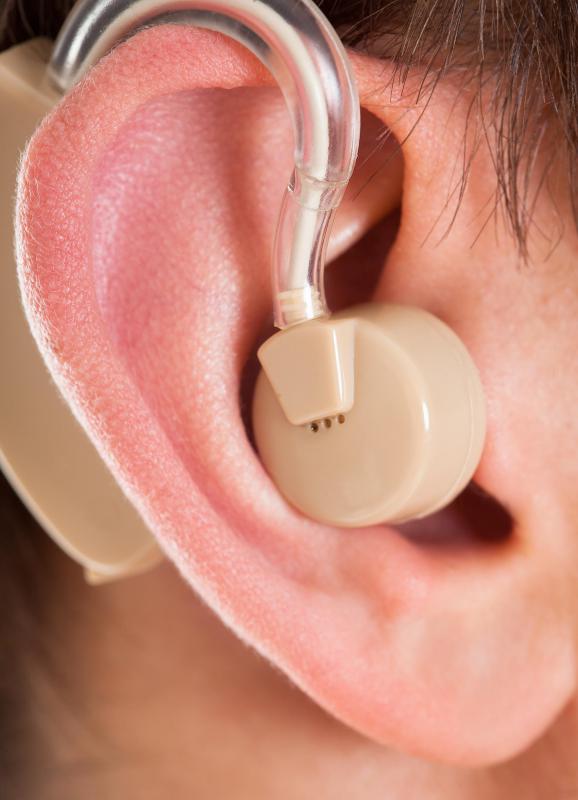At WiseGEEK, we're committed to delivering accurate, trustworthy information. Our expert-authored content is rigorously fact-checked and sourced from credible authorities. Discover how we uphold the highest standards in providing you with reliable knowledge.
What is a Hearing Aid Specialist?
A hearing aid specialist is a person who tests people for hearing loss and recommends devices to help them regain their auditory functions. She should be qualified to advise on different types of hearing aids based on her evaluations. If she believes a person needs a more extensive medical assessment of their hearing problems, she may make a referral to a qualified physician. This could be a family doctor, ear, nose and throat specialist or an internist.
Test procedures used by the hearing aid specialist may include computer-based analyses or using technical examination equipment specific to hearing loss evaluation. To make her evaluation comprehensive, the specialist may ask the patient questions about their general health, work environment or prescription drug ingestion. She may ask when the hearing loss first became apparent and if there is a history of auditory problems in the family.

Most hearing aid specialists are knowledgeable about different types of hearing aid components. They often recommend one technology over another based on their evaluation of the patient. The factors for evaluation commonly include if the hearing loss is in both ears, if it is constant or intermittent and whether the loss is sensitive to high or low tones.

The hearing aid specialist normally presents the patient with different hearing aid styles. She asks questions to determine what features are most important. Options in hearing aids include the shape, size, types of batteries needed, and ease of use. Each patient normally has specific needs and preferences in these areas. The specialist attempts to provide as many preferred features as possible.

In addition to performing patient evaluations and recommending auditory aids, a hearing aid specialist commonly works with an outside physician if she believes the patient needs further evaluation. She usually offers to schedule an appointment with a physician for the patient. After the patient sees an off-site doctor, the specialist confers with the patient and doctor on the diagnosis and available treatment options.
Other than providing patient services, the hearing aid specialist is responsible for maintaining patient files and records and ordering inventory and supplies. She may meet with hearing aid and auditory test equipment sales representatives to discuss new products and technology. As recommended patient review dates approach, the specialist contacts them via mail or telephone to schedule appointments.
A high school diploma or equivalent is required to become a hearing aid specialist. A license or certification from an accredited hearing loss education institute is normally required. Background in a medical or customer service environment is preferred.
AS FEATURED ON:
AS FEATURED ON:













Discuss this Article
Post your comments